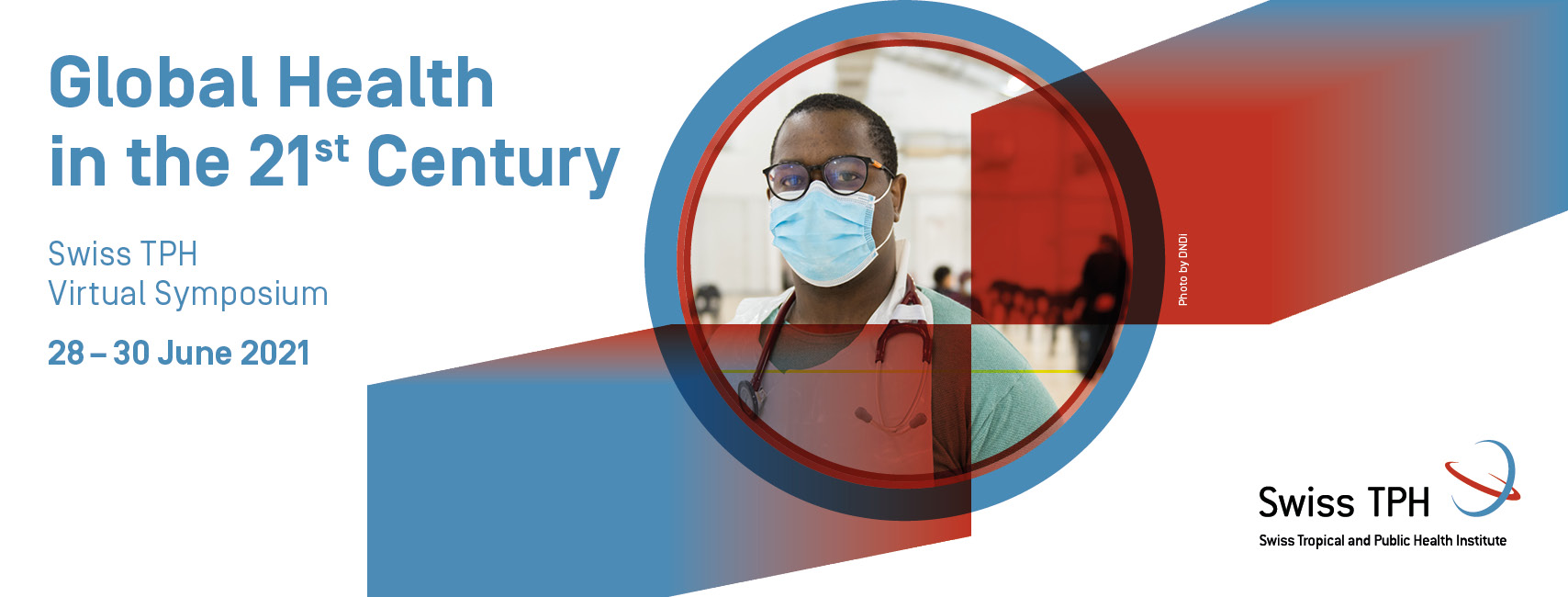
Though much progress has been made in improving global health, many new obstacles have emerged. Join the discussion on the challenges and opportunities ahead, what cutting-edge research has to offer, and case studies from around the world.
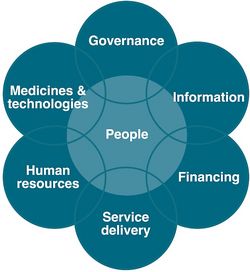
- The enigma of achieving quality care for all and the Sustainable Development Goals
- New disease-related challenges and trends in health
- The role of the private sector in improving health
- COVID-19 impact, vaccine roll-out and hesitancy
- Future national and global health priorities
Information
Organizers
Programme
09:00 | Check-in to Virtual Symposium |
09:05 | Welcome and Introduction, Nicole Probst-Hensch, Head of Epidemiology and Public Health, Swiss TPH |
09:15 | The Swiss and Cantonal Perspective on Future Health Challenges, Lukas Engelberger, Councilman and Head of Basel-Stadt Department of Health |
09:25 | KEYNOTE: A Global Repositioning of Non-Communicable Diseases, Majid Ezzati, Chair of Global Environmental Health, Faculty of Medicine, Imperial College London |
09:45 | Q&A |
10:00 | Break (15 minutes) |
Moderator: Günther Fink, Swiss TPH
10:15 | Double-Burden of Infectious and Chronic Diseases, Ikenna Eze, Swiss TPH |
10:25 | Antibiotic Resistance, Julia Bielicki, University Children’s Hospital Beider Basel |
10:35 | Malaria Control: Progress Made and Main Challenges Ahead, Christian Lengeler, Swiss TPH |
10:45 | Tuberculosis: Where Are We and What Do We Need to Do? Klaus Reither, Swiss TPH |
10:55 | HIV: How to Reach the Most Vulnerable Populations, Niklaus Labhardt, Swiss TPH |
11:05 | The Role of Migration in Disease Transmission, Afona Chernet, Swiss TPH |
11:15 | Panel Discussion |
11:30 | Break (2 ½ hours) |
Moderator: Carmen Sant Fruchtman, Swiss TPH
| 14:00 | Welcome and Quiz |
| 14:15 | What is the Biggest Global Health Challenge of Today? (break-out rooms) |
Moderator: Helen Prytherch, Swiss TPH
14:45 | From Implementation to Funding: How Does Evidence Translate into R4D Research Projects? Claudia Zingerli, Swiss National Science Foundation, and Séverine Erismann, Swiss TPH |
15:00 | Health Policy to Battle the Global Burden of Disease, Irene Agyepong, Ghana College of Physicians and Surgeons, Public Health Faculty |
15:15 | Applying Complexity Theory to Evidence-to-Policy Systems, Aku Kwamie, Alliance for Health Policy and Systems Research |
15:30 | Panel Discussion |
15:45 | Close of Day 1 |
Moderator: Melissa Penny, Swiss TPH
09:00 | Check-in and Welcome |
09:05 | Keynote: COVID-19 Response in Switzerland, Samia Hurst-Majno, University of Geneva, and Swiss National COVID-19 Science Task Force |
09:25 | Q&A |
Moderator: Fabrizio Tediosi, Swiss TPH
09:45 | Mental Health in the Basel Region (COVCO-Basel), Nicole Probst-Hensch, Swiss TPH |
10:00 | Impact of COVID-19: International Performance Comparison, Antoine Flahault, University of Geneva |
10:15 | The Science Perspective on COVID-19, Marcel Tanner, Swiss Academies of Arts & Sciences |
10:30 | Panel Discussion |
10:45 | Break (15 minutes) |
Moderator: Günther Fink, Swiss TPH
11:00 | Vaccination Against COVID-19: What Have We Learned? Claudia Daubenberger, Swiss TPH |
11:15 | Vaccine Hesitancy, Michael Deml, University of Geneva |
11:30 | Media and Public Knowledge: Sensitising the Public to Recognising Trustworthy News, Beat Glogger, Scitec-Media |
11:45 | Impact of the COVID-19 Pandemic on Child Immunization in Ghana, Isabel Günther, ETH Zurich (Swiss Federal Institute of Technology) |
12:00 | Panel Debate: Is Mandatory Vaccination in Our Future? |
12:45 | Break (1 ¼ hours) |
Moderator: Daniel Mäusezahl, Swiss TPH
14:00 | Household-Level Interventions to Improve Child Development, Stella Hartinger, Universidad Peruana Cayetano Heredia |
14:15 | Early Life Home Interventions in Brazil, Alexandra Brentani, University of Sao Paulo |
14:30 | Behavioural Nudges to Improve Child Health, Gillian Levine, Swiss TPH |
14:45 | Panel Discussion |
15:00 | Close of Day 2 |
Moderator: Kate Molesworth, Swiss TPH
14:00 | Check-in and Welcome |
14:05 | Round Table
|
Moderator: Stefan Germann, Fondation Botnar
14:45 | Quality of Care in LMICs: Evidence from the Lancet Commission, Margaret Kruk, Harvard T.H. Chan School of Public Health |
15:00 | Improving Health Systems Performance: A Systems Approach, Don de Savigny, Swiss TPH |
15:15 | Raising the Bar for Child Health and Nutrition: Insights from Laos, Sengchanh Kounnavong, National Institute of Public Health, Ministry of Health, Lao |
15:30 | How Can Switzerland Contribute to Quality Health Systems in LMICs? Alexander Schulze, Swiss Agency for Development and Cooperation |
15:45 | Panel Discussion |
16:00 | Concluding Words, Jürg Utzinger, Director, Swiss TPH |
16:15 | Close of Symposium |
Speakers and Moderators
Majid Ezzati is Professor and Chair of Global Environmental Health at Imperial College London and at the Medical Research Council-Public Health England Centre for Environment and Health. His research is on population health and environmental health with a special focus on preventable risk factors. Ezzati holds a PhD in Science, Technology and Environmental Policy from Princeton University and is a Fellow of the United Kingdom Academy of Medical Sciences. He directs a research programme that combines concepts, data and methods from a range of environmental, health, social and quantitative sciences to answer important questions in global health. His team collects and analyses primary field data, and also develops and applies analytical models to a combination of primary and secondary data.

Imperial College London, Faculty of Medicine
Chair of Global Environmental Health
Samia Hurst-Majno is a physician bioethicist, consultant to the Clinical Ethics Council of the University Hospitals of Geneva (HUG), director of the Institute for Ethics, History, Humanities (IEH2) and the Department of Health and Community Medicine at the Faculty of Medicine at the University of Geneva. Former president of the Swiss Society of Biomedical Ethics, she publishes the journal Bioethica Forum. She is also Vice-President of the Executive Committee of CIOMS, and a member of the Ethical Legal Social Issues advisory group of the Swiss Personalized Health Network, the Swiss National Advisory Commission on Biomedical Ethics and the Senate of the Swiss Academy of Medical Sciences. Before joining the Institute of Biomedical Ethics of the Faculty of Medicine of Geneva, Hurst-Majno was a post-doctoral fellow in the Department of Bioethics at the National Institutes of Health (NIH) in Bethesda from 2001 to 2003. She was a founding member of the European Clinical Ethics Network, and co-organizes the Brocher Summer Academies in the Ethics of Global Population Health with Harvard University. Very active in public discussions, she works with various media on issues related to bioethics. Hurst-Majno maintains the "Bio-ethics" blog, one of the only ones to deal with these issues in French. Every two years, she co-organizes the virtual conference "Resisting borders", which brings together researchers and activists on issues related to the rights of refugees and migrants without participants having to cross borders.

University of Geneva, and Swiss National COVID-19 Science Task Force
Head Biomedical Ethics
Marcel Tanner, Prof. PhD, is President of the Swiss Academies of Arts & Sciences and has been President of the R. Geigy Foundation since 1998. He was the director of the Swiss TPH from 1997 to 2015 and professor of epidemiology and medical parasitology at the University of Basel and at the Federal Institute of Technology. He is president of the Swiss Academy of Sciences. He also acted and acts as advisor on communicable diseases research and control, health systems strengthening and capacity building in various national and international agencies/bodies and in boards/committees such as e.g., WHO/STAC-TDR, Wellcome Trust, DNDi, NITD, FIND, INCLEN-Trust and INDEPTH Network. Marcel Tanner obtained a PhD in medical parasitology from the University of Basel and an MPH from the University of London.

Swiss Academies of Arts & Sciences
President
Nathalie Strub-Wourgaft has been part of the DNDi team since 2009, and holds over 35 years of experience in R&D and public health since the past 11 years. Strub-Wourgaft is currently the Director of Neglected Tropical Diseases (NTDs) and acting ANTICOV Lead at DNDi. Dr Strub-Wourgaft provides strategic and technical oversight to a wide portfolio of R&D and access plans for therapeutic areas covering sleeping sickness, Chagas disease, cutaneous and visceral leishmaniasis, filarial diseases, mycetoma, and COVID-19, answering unmet medical needs for neglected populations. Prior to her current appointment, Strub-Wourgaft held the Medical Director post at DNDi, where she oversaw clinical development of the DNDi kinetoplastid and mycetoma portfolio, and was also responsible for developing and supervising the organization’s quality, pharmacovigilance, and regulatory activities. Before her time at DNDi, Strub-Wourgaft served as Clinical Development Director at Trophos, and held many related roles with Pfizer, Lundbeck, Asperva, and CROs. Strub-Wourgaft graduated as Medical Doctor from Necker Hospital, Université René Descartes in Paris in 1983.

Drugs for Neglected Diseases initiative
Director, Neglected Tropical Diseases
Jutta Reinhard-Rupp is the Head of the Global Health Institute at Merck, based in Switzerland. Her focus is the discovery and development of innovative healthcare solutions including drugs, diagnostics and devices for most vulnerable populations such as children and their mothers in developing countries. The disease focus of the institute is on Schistosomiasis, Malaria and emerging antimicrobial resistance. Reinhard-Rupp received her PhD at the Max-Planck Institute in Tübingen and after her postdoctoral training, she joined biopharmaceutical industry in various assignments. She also serves as scientific advisor at various boards, including CouNTDown in the UK and EDCTP.

Merck
Head of Global Health Institute
Irene A. Agyepong is currently a Public Health Physician with the Ghana College of Physicians and Surgeons, Public Health Faculty. She also continues to consult the Ghana Health Service, Dodowa Health Research Center. Agyepong was previously Regional Director of Health Services for the Greater Accra region of Ghana, District Director of Health Services in the Dangme West district and seconded full time to the University of Ghana, School of Public Health by the Ghana Health Service in October 2012 for two years. She was part time faculty in the School of Public Health since its foundation in 1994, as well as provided field supervision to MPH students. Agyepong held the position of Professor to the Prince Claus Chair in Development and Equity (2008 –2010) in the University of Utrecht, in the Netherlands. She was awarded the Arnold Kalunzy Distinguished Alumni Award 2008 by the University of North Carolina at Chapel Hill, Public Health Leadership program, School of Public Health.
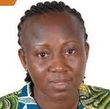
Ghana College of Physicians and Surgeons
Public Health Physician and Consultant
Sengchanh Kounnavong is currently Director General, Lao Tropical and Public Health Institute within the Government of Lao’s Ministry of Health, where she has been based for the past 33 years. She holds a PhD (Medical Science in Infection Research) from the International Health Department within the Institute of Tropical Medicine, Nagasaki University Japan and a Master in Nutrition Sciences from the Human Nutrition Unit at Sydney University. She also trained as Medical Doctor-Paediatrician and was Head of Paediatrics ward at Mittaphab Hospital for six years from 1987-1994. Kounnavong has a deep understanding of health and nutrition issues in Lao PDR and considerable experience designing and leading national survey (namely: National Health Survey 2000, 2013 and 2021, National Nutrition Survey 2006, MYCNSI 2012) and health and nutrition research (EU-project FP 7-SMILING with 5 SEA countries, Opinion Leader Research on IYCF in Lao PDR, Lao zinc study, Lao Thiamine study, Lao Cohort study, etc.). In addition to her research work, Kounnavong is also Lecturer at the master program for health in the tropic, master of public health, master of nutrition at Lao University of Health Sciences, where she currently teaches and supervises post-graduate students. She is a member of core group working on nutrition and food security framework for Lao PDR and involves in revising nutrition policy and strategy 2008 to 2015 to updating new strategy from 2016 to 2020. She is Vice-president of the national verification of polio eradication and president of the national ethic committee for health research.
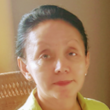
Lao Tropical and Public Health Institute
Director General
Alexandra Brentani is a faculty member of the Department of Pediatrics at the University of São Paulo Medical School (FMUSP). Working with preventive and social paediatrics. Her work focuses on understanding the impact of toxic stress, social determinants of health and other early file adversities on child development and proposing and evaluating new approaches aiming to improve early childhood. As director of the Child Development Center at FMUSP, Brentani leads many research projects to develop and propose mechanisms/interventions to improve early childhood, comprising home-based and school-based interventions in partnership with the public sector. As PI on several national and international grants, she has experience in conducting complex research projects and focuses her work in evaluating, proposing and translating early childhood development research into public policies.

University of São Paulo Medical School
Faculty Member and Director, Center for Child Development
Isabel Günther has been Professor of Development Economics and director of NADEL Center for Development and Cooperation, ETH Zurich (Swiss Federal Institute of Technology) since July 2014. From October 2008 to June 2014 she was acting as Assistant Professor for Development Economics at ETH Zürich. Günther was previously research associate at the Faculty of Economics of the University of Göttingen for three years and at the Harvard School of Public Health for one year. Her main research interest is in empirical microeconomics with a particular focus on measurement of poverty and inequality, population economics, technologies and policies for poverty reduction, and effectiveness of development aid. Günther carried out most of her research in Benin, Burkina Faso, Ethiopia, Kenya, Uganda, and South Africa.

ETH Zurich (Swiss Federal Institute of Technology)
Professor, NADEL Center for Development and Cooperation
Kate Molesworth, PhD, is Health and Social Development Adviser at the Swiss Centre for International Health at the Swiss TPH. She has 25 years’ experience in integrative health with a special focus on social inclusion, sexual and reproductive health, communicable and non-communicable disease prevention and pandemic responses (HIV and COVID-19), both in the development and humanitarian contexts across, Asia, Africa, Eastern Europe and Latin America. Since 2011, she has led the health promotion component of the Health Promotion and System Strengthening project in Tanzania, piloting systematic approaches to and policy development to guide participatory health promotion and community action for health. She is also Project Leader of the Swiss TPH Backstopping Mandate to the Swiss Agency for Development and Cooperation and Leader of the Sexual and Reproductive Health and Rights Technical Support to the Government of Norway. She is currently Co-Lead of the Rapid Review of the World Bank support to the global COVID-19 response.

Swiss TPH
Health and Social Development Adviser
Ikenna Eze is a senior scientific collaborator in the Chronic Disease Epidemiology Unit of Swiss TPH. He is also a visiting scientist at the Institut National de Santé Publique, and Centre Suisse de Recherches Scientifiques en Côte d’Ivoire, Abidjan, and University of Calabar, Nigeria. Eze holds a medical degree (MBBS) from the University of Nigeria, and a PhD in Epidemiology from the University of Basel. His research revolves around understanding the etiologic mechanisms linking the external exposome to age-related non-communicable diseases. Of particular interest is the application of exposome approaches to understand the increasing burden of cardio-metabolic diseases in sub-Saharan Africa. Eze leads and collaborates on numerous epidemiological studies integrating biomarkers to improve mechanistic understanding of modifiable disease risks in both northern and southern contexts.

Swiss TPH
Senior Scientist, Chronic Disease Epidemiology
Klaus Reither is Head of the Clinical Research Unit and the leader of the Clinical TB Research Group Swiss TPH. He oversees and coordinates clinical research projects conducted by Swiss TPH and his research responsibilities comprise the set-up, implementation, coordination and supervision of clinical research projects, with an emphasis on TB clinical trials at Swiss TPH’s international partner organisations such as the Ifakara Health Institute in Tanzania, the National Centre of Tuberculosis and Lung Diseases in Georgia and SolidarMed in Lesotho. Reither received his medical degree from the Free University Berlin, earned an academic MD from the German Heart Centre Berlin, pursued an MSc in international health and a diploma in tropical medicine and public health from Humboldt University Berlin and completed a PhD in epidemiology at the University of Basel. He has clinical experience in internal medicine and is a specialist in diagnostic radiology.

Swiss TPH
Unit Head, Clinical Research
Niklaus Labhardt is a physician trained in Switzerland, Cameroon and Lesotho, specialized in Infectious Diseases and Tropical Medicine with a Master in International Health. He leads the research group "HIV and Chronic Disease Care" at the Swiss TPH. His research group's work entails clinical, epidemiological, molecular, and implementation research focusing on HIV and other chronic diseases in South Eastern Africa. Labhardt is the sponsor/chief-investigator of several published or ongoing randomized trials addressing questions around community-based HIV testing and care, improvement of the care-cascade, cost-effective differentiated service delivery models or treatment failure in persons living with HIV and other chronic conditions in resource-limited settings.

Swiss TPH
Group Leader, HIV and Chronic Disease Care
Claudia Zingerli is scientific coordinator of the r4d programme (Swiss Programme for Research on Global Issues for Development) at the Swiss National Science Foundation (SNSF). Before joining SNSF in 2014, she was a scientific collaborator and lecturer at ETH Zurich involved in the design and implementation of innovative postgraduate courses at the interfaces between academia, policy, practice, and industry. In her academic work, she focused on the political nature of natural resource management as well as the politics of knowledge in international development. She holds a PhD in development studies from the University of East Anglia. She managed research projects in the Philippines, Vietnam, Bolivia, and Switzerland, mainly carried out in cooperation with practice partners. She is a board member of the Swiss Academic Society of Environmental Research and Ecology and a foundation board member of Sahee Foundation (sustainability for agriculture, health, environmental education).

Swiss National Science Foundation
Scientific Coordinator r4d Programme
Lukas Engelberger is a member of the government of the Canton of Basel-Stadt and since 2014, Head of the Department of Health. Since June 2020, he is also President of the Swiss Conference of Directors of Public Health (GDK). Engelberger was a member of the Grand Council of the Canton of Basel-Stadt from from 2004 to 2014, where he chaired the Economic and Tax Commission and the Special Commission for the Implementation of the New Constitution of the Canton of Basel-Stadt. Before his election to the government of the Canton of Basel-Stadt, he worked as a corporate lawyer at Roche in Basel. Engelberger studied law at the universities of Basel, Fribourg and London.

Basel Stadt
Councilman, Head of Department of Health
Margaret Kruk is Professor of Health Systems at the Harvard T.H. Chan School of Public Health. Her research generates evidence on how health systems can improve health for people living in low-income countries. Working with colleagues in Ethiopia, Kenya, Nepal, South Africa, and India, among other countries, she develops novel measures of health system quality and studies the links between quality and population demand for health care, health outcomes, and confidence in the system. Kruk and her team use implementation science and econometric methods to evaluate large-scale health system reforms. She is Director of the QuEST Centers and Network: a multi-country collaboration to produce a global evidence base for improving health systems. The QuEST Network responds to the findings of the Lancet Global Health Commission on High Quality Health Systems in the SDG Era (HQSS Commission), a global initiative chaired by Kruk. QuEST will develop instruments to assess health system quality, test structural and policy solutions to quality deficits, and support expansion of high-impact health systems research in partner countries. Kruk practiced medicine in northern Ontario, Canada. She holds an MD degree from McMaster University and an MPH from Harvard University.

Harvard T.H. Chan School of Public Health
Professor, Health Systems
Aku Kwamie is a health systems researcher. Her work focuses on applying complexity theory to health systems governance, management and leadership. She is particularly interested in district health systems, as well as teaching, learning and mentorship in health policy and systems research (HPSR). Aku currently works as a Technical Officer with the Alliance for Health Policy and Systems Research/WHO, in Geneva, where she leads portfolios on systems thinking and capacity strengthening for the conduct of HPSR. Aku is a former Board Member of Health Systems Global, and a Next Einstein Fellow.

Alliance for Health Policy and Systems Research
Technical Officer
Emmanuel Akpakwu is the Chief Commercial Officer of Novartis’s Sub-Saharan Africa region. He and his team are responsible for driving the Commercial Strategy and execution of Novartis’s Sub-Saharan Africa mandate, with the goal of expanding patient reach and access to medicines across the full income pyramid. Prior to this, Akpakwu was a Director of Corporate Strategy at Novartis where he spearheaded Novartis's ESG Strategy and co-led the launch of the healthcare industry's first sustainability linked bond. He began his career at JP Morgan in London, following which he led the World Economic Forum's Value Based Healthcare practice. Akpakwu holds a Bachelor of Science in Computer Science from the University of Hertfordshire, England, an M.Phil. from the University of Cambridge Judge Business School, England, and an Executive Education Certificate in Value Measurement for Healthcare from Harvard Business School.

Novartis
Chief Commercial Officer Sub-Saharan Africa
Julia Bielicki is a pediatrician and a researcher at St George's University of London and the University Children's Hospital Basel and holds a Masters of Public Health from the London School of Hygiene and Tropical Medicine. Bielicki was part of the core team of the Antibiotic Resistance and Prescribing in European Children project, one of the largest international collaborations on antibiotic use and antimicrobial resistance in children to date. Her current research focuses on developing appropriate surveillance methodology to assess childhood antibiotic resistance and make surveillance data accessible for clinical practice. Recently she took the lead in developing a successful proposal for a large UK-based randomized factorial trial of antibiotic dose and duration in childhood community-acquired pneumonia under the National Institute for Health Research Health Technology Assessment programme. She is looking forward to continue juggling between the UK and Switzerland.

University Children’s Hospital Beider Basel
Pediatrician and Researcher
Stefan is the Chief Executive Officer of Fondation Botnar. He is a global child health and wellbeing expert with over 30 years’ experience – living in seven and working in over 80 countries with the single passion of the progressive realisation of children’s rights. He launched several social development organisations and programs in Africa and Asia (Masiye Camp, REPSSI, One Goal Asia). As a leadership principle, Germann believes that, “Leadership is not about being in charge. Leadership is about taking care of those in your charge (Simon Sinek).”

Foundation Botnar
Chief Executive Officer
Alexander Schulze, Ph.D., M.A., is a sociologist with a postgraduate Diploma in Development Cooperation. He has served as a Head of Division “Global Programme Health” at the Swiss Agency for Development and Cooperation (SDC) since June 2019. Schulze has nearly twenty years of experience in international and global health. His areas of work include quality of health systems, access to health services and products including research and development, as well as social health protection. He has broad experience related to malaria and tuberculosis control programmes and their integration in overall primary and community healthcare, financial protection through health insurance, quality of care, and social enterprises in health as well as related to key global health organisations. Schulze joined SDC as a Senior Advisor for Health Systems Strengthening and Financing in 2014 and held the position of Co-Head of Division “Global Programme Health” from 2016 to 2019. Previously, he held various positions such as Access Program and Research Manager at the Novartis Foundation in Basel. Among others, Schulze is ad personam member of the Global Fund's Ethics and Governance Committee and has been member of the Advisory Council to the Lancet Global Health Commission on High-Quality Health Systems.

Swiss Agency for Development and Cooperation
Division Head, Global Programme Health
Stella M. Hartinger MSc PhD, is Director of the Development, Health and Environment Unit at the School of Public Health at Cayetano Heredia University, Lima, Peru. Her current experience combines projects in community health in Andean populations, randomized control trials, follow-up of large cohorts, large series statistical data analysis and the coordination of several environmental impact assessment studies (EIA), baseline studies and animal and human health studies in a different region of the country. Hartinger’s main interests are threefold: delivering health interventions addressing environmental health problems, creating supportive environments for disease prevention, and maintaining health and wellbeing. She is also the Director of the newly launched Lancet Countdown: Health and Climate Change in South America and a contributing author for the global Lancet Countdown annual report.

Universidad Peruana Cayetano Heredia, Lima
Unit Director, Development, Health and Environment
Don de Savigny is an epidemiologist and public health specialist, formerly Head of the Health Systems Interventions unit at the Swiss TPH. He is also an Honorary Professor and former Heath Clark Lecturer at the London School of Hygiene and Tropical Medicine. His research focused on interventions to strengthen health systems in developing countries, and on the health system effects of Global Health Initiatives for scaling up access. de Savigny has lived and worked for many years in Africa, most recently as lead facilitator for the Tanzania Essential Health Interventions Program (TEHIP) for the Ministry of Health in Tanzania. Between 1988 and 1996 he was Principal Health Specialist for the International Development Research Centre, Canada. Prior to that, he was the Head of the Ifakara Health Research and Development Centre. de Savigny sits on a number of advisory panels including Chair of the Health Metrics Network Technical Advisory Group, Chair of the WHO Roll Back Malaria Working Group on Scalable Malaria Vector Control, the Scientific Advisory Committee for the INDEPTH Network of Demographic and Health Observatories, the WHO African Malaria Expert Committee, the Gates Malaria Partnership, and the Council for Health Research for Development.

Swiss TPH
Professor Emeritis, Epidemiology and Public Health
Afona Chernet is a post-doctoral research fellow at Swiss TPH. He attained his training in Biology and Chemistry from University of Asmara in Eritrea, and MMedSci in Systems Neurophysiology from Hokkaido University in Japan. Chernet joined the Swiss TPH in 2015 as an Epidemiology PhD student. His research team focused on migration health from Africa. Afterwards, Chernet joined the department of Medicine at the Swiss TPH as a post-doctoral research fellow. His research interests also include migration health, epidemiology, and global and international health. Currently, Chernet is involved in migration health related research project both in Switzerland and abroad. Moreover, he participates actively in providing lectures and trainings in migration health related topics in-house and in other institutes.
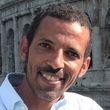
Swiss TPH
Post-Doctoral Research Fellow, Migration Health
Helen Prytherch is a Public Health Specialist and Head of the Health Systems Support unit at the Swiss TPH. She has over 20 years’ work experience gained at all levels of the health system across a variety of countries in Latin America, sub-Saharan Africa, Asia and Eastern Europe. Her main areas of expertise comprise multi-sectoral approaches, primary health care development, health financing and human resources/capacity building. Prytherch has a track record of sensitively and successfully handling complex mandates, including those involving multiple stakeholder consultation and evidence based policy-making. She has managed projects for a range of clients such as the European Union, Gavi Vaccine Alliance, German International Cooperation (GIZ), Swiss Agency for Development and Cooperation, the RBM End Malaria Partnership and the World Health Organization.

Swiss TPH
Unit Head, Health Systems Support
Melissa Penny is an Assistant Professor at Swiss TPH, University of Basel. Currently head of the Disease Modelling unit at Swiss TPH she has more than 14 years’ experience in developing mathematical and computational models to provide quantitative evidence to support infectious disease control and elimination decisions. Her most recent research focuses on analysing data and developing mathematical models and algorithms to understand parasite, host and intervention dynamics, with the goal to inform decisions during product development through to implementation and policy recommendations. This work includes new approaches with mechanistic models to inform quantitative target product profiles for novel malaria interventions. Penny is a member of WHO technical working groups and Guideline Development Groups, and along with other modelling groups supports modelling and economic based evidence during malaria vaccine Pilot studies.

Swiss TPH
Deputy Unit Head, Infectious Disease Modelling
Gillian Levine is a Postdoctoral Scientist in the Household Economics and Health Systems Research unit at Swiss TPH. Her research interests are perinatal epidemiology, pediatric and neonatal infectious disease, maternal and neonatal health and child survival in low-resource setting, epidemiology methods.

Swiss TPH
Postdoctoral Scientist, Household Economics and Health Systems Research
Séverine Erismann is trained in environmental and social sciences (B.Sc. in geography, M.A. in development studies) and epidemiology (Ph.D.) and is working as public health specialist for the Health System Support Unit at the Swiss TPH. Her technical expertise includes epidemiological data collection related to nutrition and neglected tropical diseases in the frame of school- and community-based health surveys, especially in West Africa. She has experience in the design, coordination and implementation of field research, surveys and interventions and has a particular interest in multi-method study designs that integrate participatory and inter-disciplinary approaches. In the frame of her dissertation and research activities for an international project on school children’s nutrition and health, Séverine has gained valuable experience in carrying out complex evaluations. She has conducted a longitudinal study with school children, parents, teachers and health personnel in Burkina Faso. Applied data collection methods ranged from questionnaires, half-structured interviews and clinical assessments. This mixed-method study design with qualitative and quantitative research tools allowed exploring and evaluating the multiple facets of school children’s health over a one-year period.

Swiss TPH
Public Health Specialist, Health Systems Support
Jürg Utzinger is the Director of the Swiss Tropical and Public Health Institute (Swiss TPH) and Professor of Epidemiology at the University of Basel. He holds an MSc in environmental science, a PhD in epidemiology, and pursued several years of postdoctoral research in demography and epidemiology at Princeton University in the USA. His research, teaching and training interests pertain to the epidemiology and integrated control of neglected tropical disease and health impact assessment of large footprint projects in low- and middle-income countries. He is engaged in trans-national global health research consortia with ongoing projects in China, Côte d’Ivoire, South Africa and Tanzania.

Swiss TPH
Director, Swiss TPH
Nicole Probst-Hensch is Head of the Department of Epidemiology and Public Health and the Chronic Disease Epidemiology Unit at Swiss TPH. She is also Professor of Epidemiology and Public Health at the University of Basel Medical School (Switzerland). Probst-Hensch has been trained in both Pharmaceutical Sciences (ETH Zürich) and Epidemiology (UCLA Los Angeles) and holds doctorates in both fields. She has broad research experience covering several chronic diseases including cancer, respiratory and cardiovascular diseases and covering multiple domains related to NCD risks (genetic and molecular epidemiology; environmental epidemiology; nutrition and physical activity; dual disease burden NCDs-Infectious diseases). In her research she applies biomarkers in the context of Exposome and Mendelian Randomisation approaches to improve mechanistic and causal understanding modifiable disease risks. Her research group has broad expertise in developing, implementing and scientifically exploiting longitudinal cohorts and biobanks, both nationally and internationally.

Swiss TPH
Department Head, Epidemiology and Public Health
Günther Fink is the Eckenstein-Geigy Professor of Epidemiology and Household Economics at the University of Basel, as well as the Head of the Household Economics and Health System Research Unit at the Swiss TPH. He holds an MSc in International Economic Sciences and a PhD in economics. Prior to joining the Swiss TPH, he researched and taught for 11 years at the Harvard T.H. Chan School of Public Health. His work focuses on developing and evaluating new and innovative approaches to improving health and development in low resource settings, and on measuring the long-term economic benefits of health improvements, particularly during the early childhood period. He is principal investigator of ongoing cohort studies in Brazil, Laos, Peru, Tanzania and Zambia, and collaborating with on a range of global partners on intervention trials in Brazil, Congo DRC, Cote d’Ivoire, Pakistan, South Africa and Zambia.

Swiss TPH
Unit Head, Household Economics and Health System Research
Petra Laux is acting Chief Sustainability Officer and Head of EAME Business Sustainability of Syngenta Group, one of the world’s leading agricultural technology and innovation companies. Its 49,000 people across more than 100 countries strive to transform agriculture through breakthrough products and technologies that play a vital role in enabling the food chain to feed the world safely, sustainably and with respect for our planet. As acting CSO, Laux leads a global team responsible for sustainable and responsible use of Syngenta technologies and innovation. Her team is also responsible for public affairs and public policy as well as regulatory for the crop protection business unit. Laux is a senior public affairs leader with over 25 years of experience in the research-based pharmaceutical industry. She joined Syngenta in 2019 as Head of EAME Business Sustainability. Prior to joining Syngenta, Petra worked at Novartis Headquarter in Basel where she was leading the Global Public Affairs function for over a decade, responsible for government relations, public policy, advocacy and ensuring the company is best positioned. Laux holds a Master’s in Public Health, a PhD in Pharmaceutical Chemistry and is a trained Pharmacist. She has working experience in Germany, Europe and at global level, implementing programs across Washington, Brussels, Sao Paolo, Beijing and Tokyo. She served as Board member in various associations and in Novartis Holding Germany.

Syngenta
Acting Chief Sustainability Officer
Beat Glogger is a trained microbiologist and journalist. After 14 years as editor, presenter and editorial director at the science magazine MTW on Swiss television, Glogger and his fellow scientists founded Scitec-Media in 2003. Scitec-Media has become the leading platform in Switzerland for science journalism and communication. In addition to the media, their customers include many universities, institutes and institutions from science and research, public administrations and private companies. Globber has published several non-fiction books and three novels, chaired countless public talks and events, and has been teaching science journalism and giving media training for years. He has received several awards for good science communication.

Scitec-Media
Science Journalist and Founder
Antoine Flahault MD, PhD in biomathematics. He was appointed as professor of public health at School of Medicine, University of Geneva in January 2014, where he is the founding director of the Institute of Global Health. He was elected corresponding member at Académie Nationale de Médecine (Paris). Flahault was the founding director of the French School of Public Health (EHESP, Rennes, 2007-2012), co-director of Centre Virchow-Villermé for Public Health Paris-Berlin (Université Descartes, Sorbonne Paris Cité), co-director of the European Academic Global Health Alliance (EAGHA), and president of the Agency for Public Health Education Accreditation (APHEA). He conducted research in mathematical modelling of communicable diseases, chaired the WHO collaborative centre for electronic disease surveillance, and coordinated research on Chikungunya in Indian Ocean.

University of Geneva
Professor of Public Health, School of Medicine
Michael Deml, Postdoctoral Scientific Collaborator at the University of Geneva's Institute of Sociological Research, holds a PhD in Epidemiology and Public Health from the Faculty of Medicine at the University of Basel and an MA in Sociology from the University of Geneva. He is an expert on vaccination decision-making in the Swiss context. Michael uses social science methods to study health decision-making behaviors, primarily in the context of prevention of infectious and communicable diseases.

University of Geneva
Postdoctoral Scientist
Christian Lengeler is Unit Head at the Swiss TPH and Professor of Epidemiology at the University of Basel in Switzerland. For the past 30 years, his research efforts have centred on the epidemiology and control of tropical diseases, with a strong focus on malaria. He has been involved in the development of insecticide treated nets (ITN) as a malaria control tool, and was responsible for pioneering many developments in large-scale vector control in sub-Saharan Africa. Since 1999, he has been supporting implementation of the National Malaria Control Programme in Tanzania. Professor Lengeler’s group is currently working to understand and improve access to malaria treatment in malaria-endemic countries, including improving the quality of health care, studying the introduction of improved diagnostic strategies, and understanding the nature and relevance of non-malarial fever illnesses. His group is also implementing a large-scale study to improve the management of severely ill children in highly endemic countries.

Swiss TPH
Unit Head, Health Interventions
Carmen Sant Fruchtman, MSc, MIH, is a scientific collaborator in the health systems research group at Swiss TPH. She also obtained her master of International Health from Swiss TPH, in which she specialized on how to scale up sustainable digital health solutions. Sant Fruchtman’s work has led her to conduct research and implementation projects in low-and middle-income countries, mainly in Tanzania and Ghana. Her expertise includes the application of a health system perspective to different fields, from civil registration and vital statistics systems, to district health management. She also has expertise and a special interest in integrating a gender lens into all the projects she is involved with, making sure the needs of girls and women are addressed in all studies and projects. This passion also led her to co-found the Diversity and Inclusion network at Swiss TPH.

Swiss TPH
Scientist, Health Systems Research
Daniel Cobos Muñoz MD, MPH, PhD, is a Research Fellow in the Health Systems and Policy Research group, Swiss TPH. He is a Medical Doctor specialized in Family and Community Medicine, with a Master’s Degree in Public Health in Developing Countries from the London School of Hygiene and Tropical Medicine, and a PhD in Public Health. He has more than 15 years of experience working in health systems of low and middle-income countries. His areas of expertise are the application of systems thinking tools and methods in health systems, mortality surveillance systems in LMIC including verbal autopsy, district health systems, and primary health care.

Swiss TPH
Research Fellow, Health Systems and Policy Research
Claudia Daubenberger is Unit Head of Clinical Immunology at the Department of Medical Parasitology and Infection Biology of the Swiss Tropical and Public Health Institute. Her main interest is the in-depth analysis of human immune responses in phase I to phase III vaccine trials targeting Plasmodium falciparum malaria in all age groups in Sub-Saharan Africa. The rigorous immunological evaluations of whole purified Plasmodium falciparum sporozoite based vaccine approaches in the East, and West Africa are one focus of her current work. Over the past ten years, her unit has supported developing and running a dedicated clinical research hospital located in Bagamoyo, Tanzania. Along with well-equipped laboratory infrastructure for on-site immunological and parasitological studies, the hospital has become a unique international research platform for "early in men" intervention studies. Members of her unit, together with colleagues from the Ifakara Health Institute in Tanzania, planned, built, and equipped a cutting edge public health research laboratory in Equatorial Guinea. This advanced infrastructure was essential in the successful response of Equatorial Guinea to the Sars-Cov-2 pandemic. The laboratory was the first in the West African region to detect Sars-Cov-2 and has allowed the government to understand COVID-19 disease epidemiology and dynamics in real-time.

Swiss TPH
Unit Head, Clinical Immunology
Fabrizio Tediosi is an economist specialized in public health and health systems and policy analysis. He is Group Leader, Health Systems and Policy at Swiss TPH. His current research interests focus on how to strengthen institutions to promote good governance of health systems and translating evidence to policy. Tediosi is also interested in developing and applying methods to evaluate and validate health interventions for delivering them at adequate levels of effective coverage. He holds an appointment as an adjunct professor and associate researcher at Bocconi University in Milan, Italy.
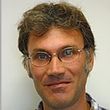
Swiss TPH
Group Leader, Health Systems and Policy
Daniel Mäusezahl heads the Household Health Systems research group of the Household Economics and Health Systems Research unit in the department of Epidemiology and Public Health at Swiss TPH. He conducts health systems research with a portfolio focusing on surveillance and routine health data of infectious diseases in the global south and north, food safety- and environmental health interventions. He specifically focuses on integrated approaches to improve household, environmental and child health. His research in Switzerland focuses on the control of food and waterborne diseases. Mäusezahl co-directs the Swiss-Peruvian Health Research Platform with the Universidad Peruana Cayetano Heredia in Lima, Peru maintaining a research station in the Andes.

Swiss TPH
Group Leader, Household Health Systems Research